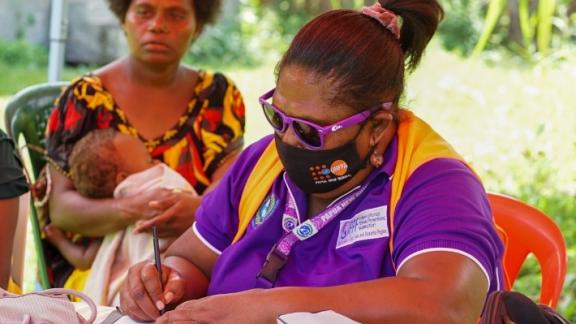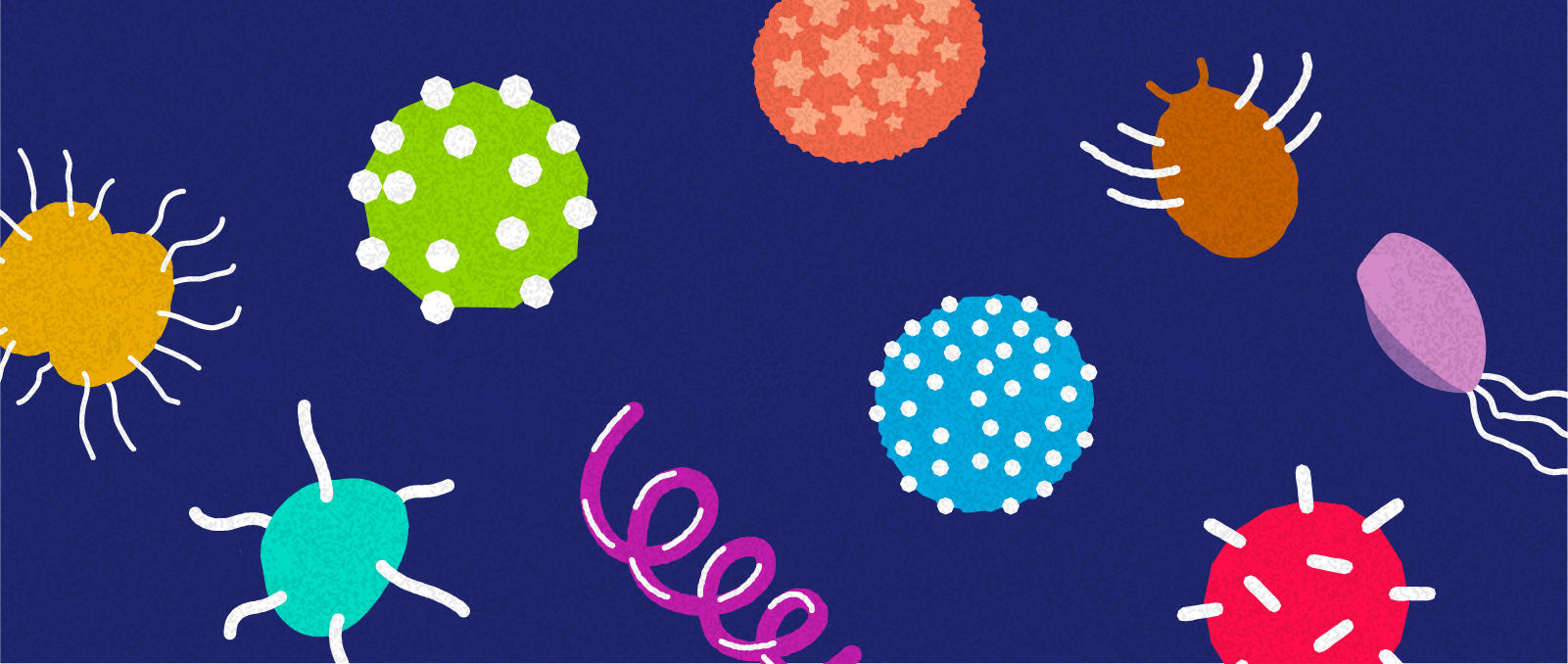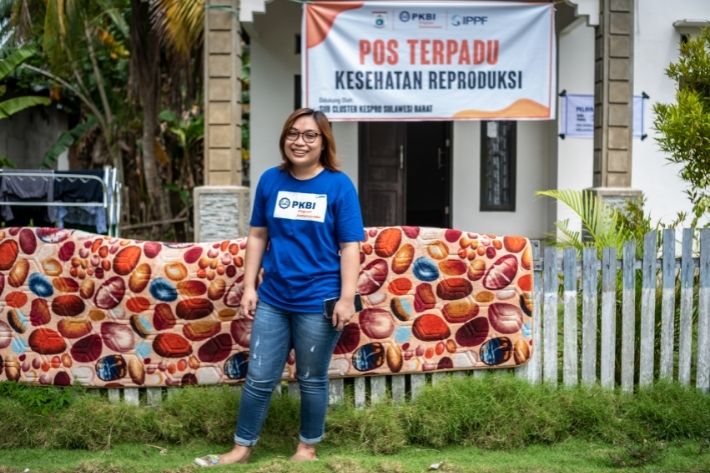Ravat Village in East New Britain, Papua New Guinea, is located south of the province’s capital Kokopo. Despite being located approximately 30 minutes' drive from the capital, lack of access to transportation and subsequent stay-at-home orders during the COVID-19 pandemic have left many communities further isolated.
The Papua New Guinea Family Health Association (PNGFHA) was quick to respond to ensure life-saving sexual and reproductive healthcare (SRH) continues during the pandemic, by setting up mobile clinics in the most remote villages. PNGFHA mobile clinics are supported by the Australian Government under the IPPF’S SPRINT initiative.
"I knew I would come here"
Diane Benson, a young mother of three, is one of the first to arrive at the Ravat Village mobile clinic. She has been wanting to get reliable information on contraceptive options.
“I haven’t been able to travel out to town to get the information or services [on SRH]. So as soon as I knew PNGFHA were coming to the village, I knew I would come here for advice on family planning.”
Many women like Diane face the same challenges of transportation and finances to access SRH services in other clinics. The fear of being infected with COVID-19 at health facilities also had deterred many from seeking SRH services.
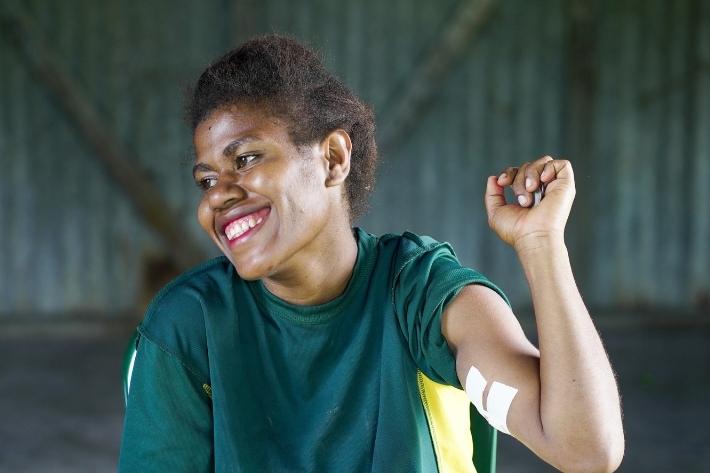
Diane returned home with a contraceptive implant fitted in her arm after consultation at the PNGFHA mobile clinic. Before she leaves, she shared her dream to finish her education that was halted with her pregnancies and raising her children.
“I would like to go back to school...then I would also like to go to university. I would like to become a teacher, so I can help other students and young mothers like me who would like to go back and finish their education.”
Continuous access to essential SRH services
Pre- COVID-19, it is estimated that 214 million women and girls globally are not using modern contraception, despite wanting to avoid pregnancies. On top of that, the WHO identified PNG as one of the highest countries with maternal and newborn mortality rates in WHO’s Western Pacific Region. The pandemic has further hampered this dire situation.
The Executive Director of PNGFHA, Michael Salini, said: “PNGFHA mobile clinics serve some of the most vulnerable women and girls in the community. With this support, we are able to provide essential SRH services. While the public clinics are focusing their efforts on managing COVID-19, PNGFHA mobile clinics are deployed and reaching out to communities to ensure SRH access are available and not deprioritized in a crisis setting.”
PNGFHA mobile clinics have visited communities in especially in remote areas and smaller towns across Papua New Guinea since March 2020. The mobile clinics provide a wide range of SRH services and consultations on family planning, antenatal and postnatal care, immunizations and smear tests/pap smears, and other aspects of women’s health and wellbeing.
A localized approach
Christine Atu is a local aid worker that coordinates the mobile clinics in East New Britain. She is a firm believer that proper consultation of any SRH services is vital to assisting patients in making an informed decision. Christine sees the mobile clinic as a crucial educational hub for women to understand their sexual and reproductive health rights besides administering treatments.
While women and girls often visit the mobile clinics, Christine’s local understanding of social norms has helped her develop a method to include men in her consultation, especially for couples.
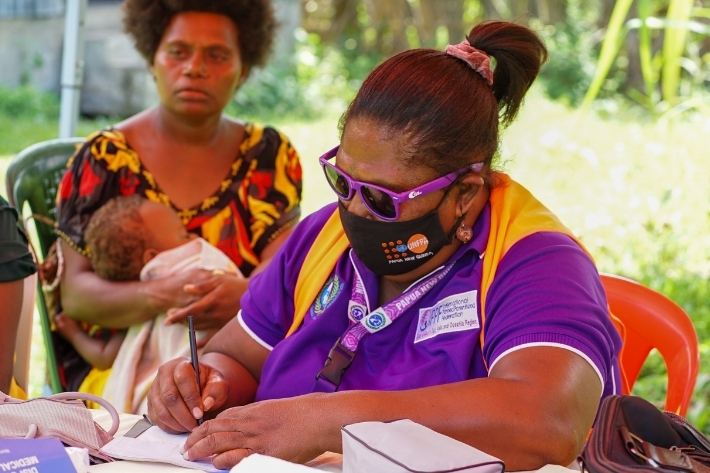
“I find it works if I write a note to the husband to come back to the clinic with their wife because the little note is like an invitation...When I write a note, they feel like they are invited, and they will show up. When that happens, I am very happy, and I dedicate one day every week in the clinic to just sit with people and do counselling.”
Christine hopes that the work and effort she put into are breaking the cultural taboo surrounding sexual and reproductive health in the area. She also has seen more men coming with their wives to the clinic, which is a positive shift in the local community, especially in ensuring successful family planning.
when
country
Papua New Guinea
Subject
Emergencies
Related Member Association
Papua New Guinea Family Health Association







